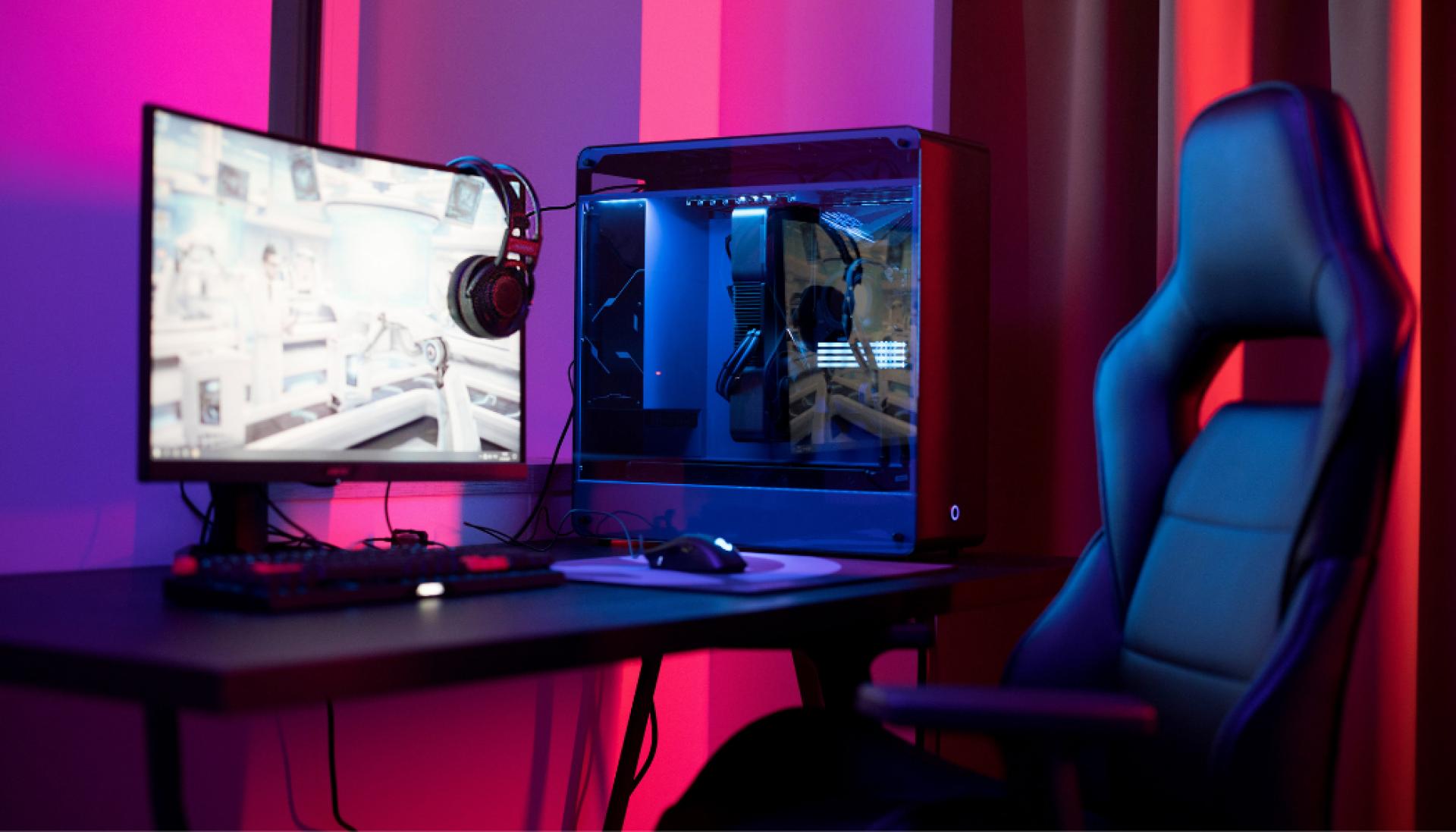
For decades, gamers were stereotyped as basement-dwelling nerds and reclusive geeks - but nowadays, that couldn’t be further from the truth.
Previously viewed as a niche pastime, gaming has now become overwhelmingly mainstream - there are roughly 2.6bn active gamers around the globe, and that number is only heading in one direction.
Fuelling this explosion in popularity is the sheer diversity of gaming titles that are now available to the public.
Gaming caters to a wide variety of audiences, from casual enjoyers to hardcore competitors - and whether you’re into wholesome farming simulators or intense first-person shooters, you can find the perfect game for your needs.
A big reason for this variety is the number of independent studios that are producing unique games, pushing technological boundaries, and building dedicated audiences. However, a steady rise in gaming M&As (mergers & acquisitions) is threatening to change the gaming landscape forever.
Mergers & acquisitions typically involve larger companies buying/absorbing smaller companies for strategic or financial reasons, and they often cause huge industry shifts.
There are many incentives for established gaming studios to acquire smaller businesses - but this isn’t always good news for gamers. In this post, we’ll be analysing the recent surge in gaming M&As, and exploring how these industry changes may be impacting gaming enthusiasts around the world.

The M&A frenzy in gaming
The gaming industry is fiercely competitive. Major players like Microsoft (i.e. Xbox) and Sony (i.e. PlayStation) are constantly competing for dominance across technological capabilities, gaming catalogues, and subscription numbers.
Unsurprisingly, this intense competition has led to a huge rise in mergers & acquisitions.
(In 2023, the gaming industry’s M&A value reached a record-breaking $86bn - indicating the size of the deals taking place!)
One of the fastest ways for big studios to bolster their offerings and capture new audiences is to acquire smaller studios. With strategic acquisitions, larger businesses can quickly add popular titles to their portfolios, which then allows them to strengthen their subscription services (such as Xbox Game Pass and PlayStation Plus) and explore new avenues.
For example, Microsoft’s acquisition of Activision Blizzard was a colossal deal that brought titanic franchises like Call of Duty and World of Warcraft under the Microsoft banner. Similarly, Sony’s acquisition of Bungie allowed the company to expand its live service offering with popular titles like Destiny.
It’s easy to see how tactical M&As can drive profitability and competitiveness for gaming studios. But it’s important to understand why these M&As are taking place, and how they’ll affect the landscape moving forward.

The driving forces behind the rise in gaming mergers & acquisitions
Gaming M&As aren’t necessarily a new phenomenon - but the last few years have seen an unprecedented increase in the scope and scale of these deals.
(To put this in context, 14 of the 20 most expensive gaming acquisitions occurred between 2020-2023!)
But why are M&As becoming such a popular strategy for gaming behemoths like Sony, Microsoft, EA and Ubisoft?
Well, a simple answer is economies of scale. Large studios with an extensive range of titles/ services can steadily improve efficiency and maximise profits - particularly with subscription models that consistently bring in revenue and in-game sales.
The more valuable intellectual property (i.e. gaming franchises, classic titles, media rights) a gaming studio can acquire, the easier it becomes to maintain profitable subscription services.
Cloud gaming infrastructure is also important to consider.
If cloud gaming platforms want to continuously attract (and retain) subscribers, they need to secure streaming rights to popular titles and build their catalogues over time - and acquiring independent studios can be critical to this process.

What are the potential perils of mass M&As in the gaming industry?
While large-scale M&As can be incredibly beneficial for major gaming companies, they’re not always a good thing for gamers.
Mergers and acquisitions inevitably cause seismic shifts in the gaming world, and these shifts can start to change what gamers love about the industry.
Below are a few prevalent issues that can arise from gaming M&As:
Rising game prices
Gaming acquisitions effectively reduce competition and consolidate the industry, which can lead to higher game prices - and even lower-quality services. If a handful of big studios dominate the market, they can freely dictate game prices, and won’t necessarily be incentivised to deliver the best customer experience possible.
More exclusive titles
Platforms like Xbox and PlayStation are constantly battling for domination - and one of the most effective ways to capture market share is securing exclusive titles.
By making popular games exclusive to a specific platform, studios can essentially force fans to purchase their consoles/subscribe to their services.
This severely limits player choice, and gamers often find that their favourite titles are ‘locked’ across multiple platforms - meaning they either need to purchase several consoles/subscriptions, or go without.
Stifled creativity & innovation
Smaller studios tend to be inherently more creative and innovative in terms of game design. They’re generally targeting smaller (but highly loyal) gaming audiences, and developing unique titles that are meant for niche segments instead of mainstream masses.
Unfortunately, this level of creativity can be lost when independent studios are absorbed by larger companies.
Bigger gaming studios tend to be more interested in maximising sales and driving profitability, which means broad appeal is more valuable than daring innovation. While this isn’t always the case, targeting mass audiences usually leads to less experimental game design, which means everyday gamers miss out.

Is it all doom and gloom when it comes to gaming M&As?
Although many gamers (understandably) may not love the idea of increased M&As, it’s not all bad news.
Acquisitions often lead to a significant increase in investment for independent studios, allowing them to pursue bigger ideas with serious financial backing.
For example, when Microsoft completed its $7.5bn acquisition of ZeniMax Media (the parent company of Bethesda), here’s what Bethesda marketing chief Pete Hines had to say about the deal:
“As we’ve all shared, the expectation is that Bethesda Softworks and our studios will continue as we have in the past, just with more support and resources than we’ve ever had before…stay tuned, we’re just getting started together.”
Bigger gaming studios can essentially act as patrons to smaller studios, providing them with the funding and resources they need to thrive. If these relationships are managed correctly, independent studios can retain their creative freedom while bigger studios benefit from exciting new titles and innovative ideas - it’s a win-win.

How gamers can shape the future of the industry
It can often feel like major corporations have total control of the gaming industry, dictating everything from game pricing to title access.
However, it’s ultimately everyday customers who have the power to influence the future of the market.
Money is the driving force behind any trend in the gaming sector, and so if gamers want to see change, they can vote with their cash. By supporting high-quality games from independent studios (and refusing to purchase sub-par games or pay inflated prices) gamers can send a clear message to big businesses about their preferences.
If gaming enthusiasts show vocal support for smaller studios, advocate for fair pricing, raise concerns about anti-consumer behaviours, and pressure bigger studios, they can have a meaningful impact on the future of the industry.
(This is also where industry regulators play a vital role in protecting consumer rights and ensuring a level playing field!)
The surge in massive gaming M&As isn’t likely to slow down anytime soon, and it’s a complex subject.
While these enormous deals can provide independent studios with invaluable funding, they can also restrict creativity, drive up pricing, and limit consumer choice. But although gamers may feel powerless at times, they should always remember the value of their buying power.
When gamers rally behind smaller studios and push back against excessive corporate control (with the support of industry regulators) they can steer the gaming industry towards a brighter, fairer, and more enjoyable future.
If you'd like to get in touch to discuss recruitment for your business, please contact [email protected]





